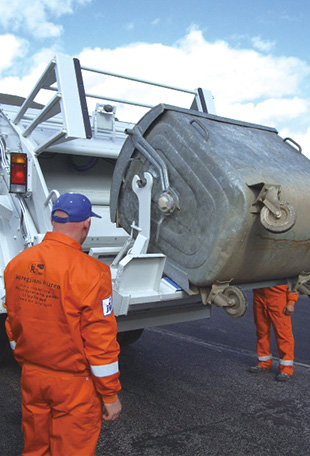Japan's Official Development Assistance White Paper 2013
8. Europe
Many of the countries in Central and Eastern Europe and the European region of the former Soviet Union that had previously been under communist systems have subsequently achieved democratization and liberalization. They are currently working towards economic development based on market economies under democratic administrations. Japan has provided assistance for efforts such as the transition to market economies, reconstruction of economic infrastructure, and addressing environmental issues. The aim is to keep stability and development in these regions and in Europe as a whole, as well as to build relationships that can share the universal values (human rights, democracy, market economy, and rule of law).
<Japan’s Efforts>
Reforms had once slowed down in the Western Balkans (Note 7) due to the impact of conflicts which occurred in the 1990s. However, assistance from donor countries and international organizations and their own efforts for reform have enabled them to graduate from the stage of receiving aid for reconstruction. Currently, they are at the stage of requiring assistance aimed at sustainable economic development. Japan has provided assistance on the three main pillars of “consolidation of peace,” “economic development,” and “regional cooperation” that were confirmed at the Ministerial Conference on Peace Consolidation and Economic Development of the Western Balkans that was held jointly by Japan and the EU in 2004, as its priority areas for development cooperation. Japan also continues to provide assistance with the “consolidation of peace and ethnic reconciliation” and “addressing environmental and climate change issues” as its particular priority policies.
Ukraine and Moldova (the former Soviet States) are geopolitically and diplomatically important since they are located between Russia and the EU. The stability and sustainable development of these countries are indispensable for the stability of Europe as a whole. Japan assists in their efforts to consolidate democracy and establish market economies.
In light of disparities in economic development in Europe, Japan gradually reduces assistance to new EU member countries, deeming them as having graduated from ODA, and encourages them to become donors to provide development cooperation to less developed countries in Europe. At the same time, Japan continues appropriate support to the less developed countries like those of the Western Balkans and Ukraine, considering their economic levels. In addition, regardless of the country receiving the aid, Japan intends to focus more on results and effective and efficient aid by utilizing Japan’s knowledge and experience, while paying attention to the activities of other donor countries and international organizations.
Some of the former recipients of Japan’s ODA were removed from the list of the countries eligible for ODA assistance when they joined the EU, and are now beginning to fulfill an international role as donor countries. Japan works to share its experiences with those countries including the Visegrad Group (V4) (Note 8) as a donor country.
Note 7: Western Balkan countries: Albania, Bosnia and Herzegovina, Croatia, Kosovo, Montenegro, Serbia, and the former Yugoslav Republic of Macedonia
Note 8: Visegrad Group (V4): Czech Republic, Hungary, Poland and Slovakia
●Kosovo
The Project for Improvement of Solid Waste Management
Grant Aid (March 2011 - October 2012)
The Project for Enhancement of the Capacity for Waste Management towards Sound Material-cycle Society
Technical Cooperation Project (September 2011 - Ongoing)
Kosovo became independent only in 2008, and since its post-conflict reconstruction focused on the redevelopment of socio-economic infrastructure, environmental measures have been delayed. Of all the issues, the improvement of solid waste management capacity is most pressing. Due to dilapidation and lack of waste collection equipment, waste collection had been inadequate. Waste that could not fit into containers was scattered around and was illegally disposed of into rivers and in streets, leading to the worsening of public sanitation.
In light of this, in FY2010 Japan decided to implement the Project for Improvement of Solid Waste Management as the first grant aid project for Kosovo. Japan supplied 43 Japan-made small and medium sized waste collection trucks to Kosovo’s capital, Pristina, and the country’s second largest city, Prizren. Currently, these vehicles are used to provide approximately 580,000 people, which is one-third of the country’s population, with waste collection services. Notably, in Prizren, a historical town with narrow streets and in hilly regions, waste collection could not be completed with the large waste collection trucks common throughout Europe. The project has thus facilitated waste collection in these areas.
Furthermore, in Prizren, a technical cooperation project “The Project for Enhancement of the Capacity for Waste Management towards Sound Material-cycle Society” is currently being undertaken, developing the solid waste processing plans and running campaigns to raise citizen awareness, to realize a Sound Material-cycle society through the 3Rs (reduce, reuse, and recycle).
(As of August 2013)

Japan-made waste collection truck in service in Prizren, old capital of Kosovo (Photo: JICA)


